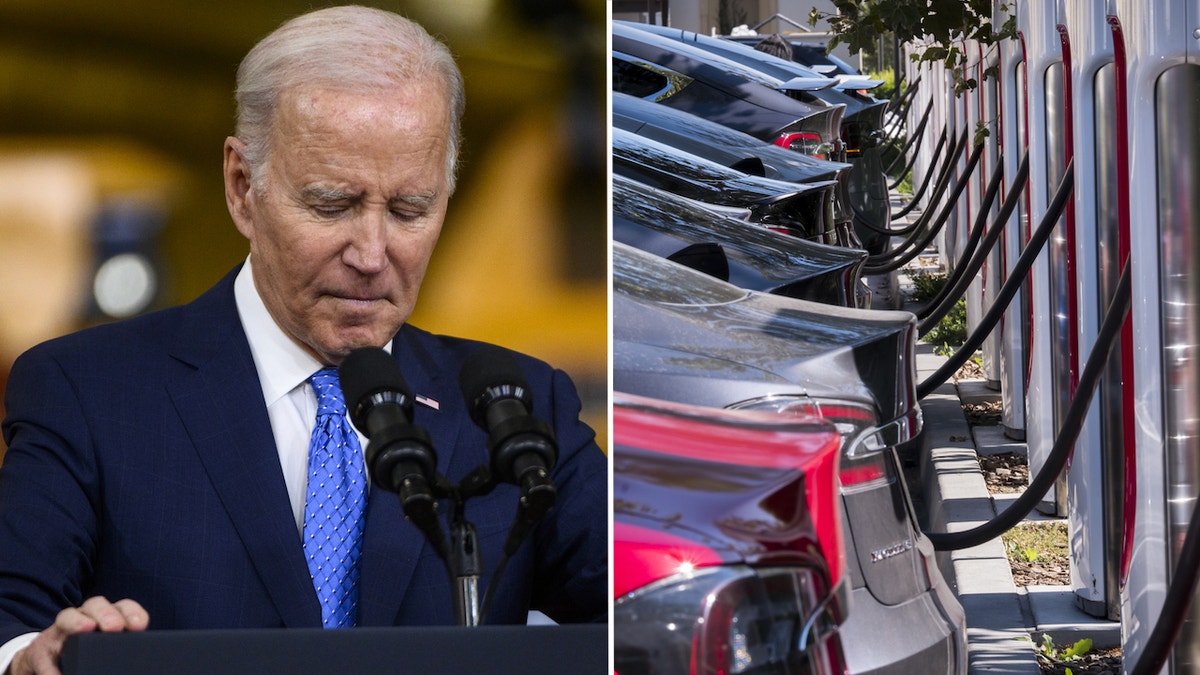Dealers Double Down: Fighting Back Against EV Mandates

Table of Contents
Financial Burden of EV Infrastructure
The transition to an EV-centric market requires significant investment from dealerships. The high upfront costs associated with installing the necessary EV charging infrastructure represent a major hurdle. This includes not only the purchase and installation of chargers but also the necessary grid upgrades to handle increased electricity demand. Dealerships are grappling with several key financial challenges related to EV infrastructure:
-
High Upfront Costs: The price of installing Level 2 and DC fast chargers can be substantial, depending on the number of chargers and the required electrical upgrades. This represents a considerable capital expenditure for dealerships, especially smaller independent ones.
-
Insufficient Government Support: While some government subsidies and incentives exist to encourage EV infrastructure development, many dealers argue that these are insufficient to offset the significant investment needed. The application processes for these subsidies can also be complex and time-consuming.
-
Uncertain ROI: Accurately calculating the return on investment (ROI) for EV charging infrastructure is challenging. The profitability depends on several factors, including EV adoption rates in the dealership's area, electricity prices, charging fees, and maintenance costs. The uncertainty surrounding these factors makes it difficult for dealerships to justify the financial risk.
-
Profitability Concerns: Servicing and maintaining EVs can also present different profit margins compared to internal combustion engine (ICE) vehicles. The complexity of EV technology and the specialized tools required can impact the profitability of service departments.
-
Stranded Assets Risk: Dealerships investing heavily in EV infrastructure face the risk of stranded assets if EV adoption rates fall short of projections or if technological advancements render existing charging technology obsolete.
Training and Personnel Challenges
The shift to EVs requires a significant upskilling of the dealership workforce. EVs have a different technological architecture compared to ICE vehicles, requiring specialized knowledge and skills for maintenance and repair. This presents several challenges:
-
Specialized Technician Training: Dealerships need to invest heavily in training their existing technicians on EV-specific repair and maintenance procedures. This includes training on high-voltage systems, battery diagnostics, and specialized software.
-
Skilled Labor Shortage: There is a widespread shortage of qualified EV technicians in the market, making it difficult for dealerships to find and hire skilled personnel. Competition for qualified technicians is fierce, driving up wages and recruitment costs.
-
Retraining Costs: Retraining existing technicians on EV technology requires significant investment in time, resources, and training programs. This can disrupt service operations and impact profitability during the training period.
-
Attracting and Retaining Talent: Attracting and retaining skilled EV technicians requires competitive salaries and benefits packages. The automotive industry needs to actively compete with other sectors for this specialized talent pool.
-
Skill Gaps Impacting Efficiency: A lack of adequately trained technicians can lead to service delays, reduced efficiency, and potentially lower customer satisfaction.
Consumer Demand and Market Readiness
The success of EV mandates hinges on consumer acceptance and market readiness. While EV sales are growing, several factors remain obstacles to widespread adoption:
-
Uneven Consumer Demand: Consumer demand for EVs varies significantly across different regions and demographics. Some markets show higher adoption rates than others, reflecting varying levels of awareness, affordability, and infrastructure availability.
-
Range Anxiety and Charging Infrastructure: Range anxiety – the fear of running out of battery power – remains a significant barrier for many potential EV buyers. The lack of widespread and reliable public charging infrastructure further exacerbates this concern.
-
Lack of Consumer Awareness: Many consumers still lack a full understanding of EV technology, its benefits, and the necessary charging infrastructure. This lack of awareness can hinder their willingness to adopt EVs.
-
Incentive Influence: Government purchase incentives and subsidies significantly influence consumer choices. The availability and generosity of these incentives play a crucial role in driving EV adoption.
-
Consumer Education: Effective consumer education campaigns are essential to address misconceptions, highlight the benefits of EVs, and build confidence in the technology.
Lobbying and Political Action
Faced with the challenges presented by EV mandates, dealer associations are stepping up their lobbying efforts and political actions:
-
Increased Lobbying: Dealer associations are actively lobbying government officials to advocate for more realistic timelines and supportive policies for the transition to EVs. This involves influencing legislation and regulatory changes.
-
Industry Collaboration: Dealers are collaborating with other industry stakeholders, including manufacturers and suppliers, to present a united front in advocating for regulatory reform.
-
Legal Challenges: In some instances, dealers may explore legal challenges to mandates deemed overly burdensome or unfair.
-
Equitable Regulations: Dealers are working to ensure that regulations are fair and equitable for all vehicle types, promoting a balanced approach rather than solely focusing on EVs.
-
Alternative Fuel Advocacy: Many dealer associations also promote alternative fuel vehicle options, such as hybrids and fuel-cell vehicles, as part of a broader strategy to achieve emission reduction goals.
Conclusion
The implementation of EV mandates presents significant challenges for car dealerships. The financial burdens of upgrading infrastructure, the need for specialized training, and the uncertainties surrounding consumer demand require careful consideration. However, through strategic lobbying, adaptive business models, and a focus on customer education, dealerships are proactively addressing these hurdles. Understanding the concerns and perspectives of dealerships is crucial for policymakers to craft effective policies that encourage EV adoption without undermining the viability of the entire automotive retail sector. Ignoring these concerns could have significant unintended consequences. Staying informed about the evolving dynamics surrounding EV mandates and the responses of car dealerships is vital to navigating this crucial transition in the automotive industry.

Featured Posts
-
 Napoleon Ceo Prioritizes Buying Canadian
Apr 27, 2025
Napoleon Ceo Prioritizes Buying Canadian
Apr 27, 2025 -
 Open Thread February 16 2025 Discussion
Apr 27, 2025
Open Thread February 16 2025 Discussion
Apr 27, 2025 -
 Zuckerberg And The Trump Era A New Phase For Meta
Apr 27, 2025
Zuckerberg And The Trump Era A New Phase For Meta
Apr 27, 2025 -
 Chargers To Kick Off 2025 Season In Brazil Justin Herberts Reaction
Apr 27, 2025
Chargers To Kick Off 2025 Season In Brazil Justin Herberts Reaction
Apr 27, 2025 -
 Moscow Bombing Russia Points Finger At Ukraine General Among Dead
Apr 27, 2025
Moscow Bombing Russia Points Finger At Ukraine General Among Dead
Apr 27, 2025
